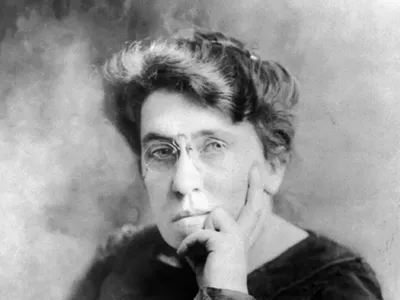The city of Hamtramck is only about 2.1 square miles, but within that space is a rapidly changing demographic. What was once a predominantly Polish town has seen an influx of different ethnic groups in recent years, with Bangladeshis being among the most visible. A stretch of Conant Street has even earned the nickname “Bangladesh Avenue” because of the numerous ethnic grocery stores, clothiers, and other shops lining the street that cater to people from the India-bordering nation.
Photojournalist Kenny Corbin likes to study ethnic groups in the Detroit area, and his eyes opened to Hamtramck’s Bangladeshi community when he was shooting at a boxing gym above a clothing store. “It was mostly for [Eastern European] kids who were into boxing, but there were two Bangladeshi kids in there as well,” Corbin says. “I talked to them a little bit and I talked to their parents, who were telling me about how Hamtramck [transformed] to what it is today.” There were only a couple of Bangladeshi stores in Hamtramck 10 years ago. Now there are more than 13 shops in the city that sell the cultural wear of the Bengali people — Muslims and Hindus from Bangladesh, India, and Pakistan.
Corbin worked with WDET for what he hopes will be the first installment in a series. WDET Takes Over Public Pool takes a look at Hamtramck’s Bangladeshi community by focusing on its myriad dress shops. “In a nutshell, the idea was to give someone who’s driving their car listening to a story on WDET a chance to experience it,” says Courtney Hurtt, who served as producer of the show. “We bring you to the city — we’re literally blocks away from the shops we featured in the event.” The exhibit features audio interviews from Hurtt, as well as photos from Corbin, and garments on display from local shops.
“It was pretty much just us walking around and meeting people,” Hurtt says of the research process for the show, admitting they weren’t entirely sure where the dialogue would lead them. “We were going into it thinking we were going to do something on women,” Hurtt says. “We thought we could talk about beauty and faith.”
“But the men were the main people on the floor,” Corbin says. “The women were the ones in the back buying everything.”
Nevertheless, Hurtt says she’s pleased with what they came up with. “Everyone was very open and transparent and communicating with us,” she says. “We got very personal stories.”
Hurtt and Corbin wound up talking with six different shop owners. One of the tales they uncovered was a coming-of-age story. A young Muslim girl they met in a shop had just turned 15. She was wearing a hijab, which just covers the head and shoulders, but was making the decision to buy her first abaya, the all-black garment that covers the entire body. “She talked to us about America and showing her pride in her face by choosing to cover,” Hurtt says. “She talked to us about [how] the younger Bangladeshi youth are more fundamental in terms of their practice of Islam because it’s not a cultural norm in America. So they found that [they] have to be more fundamental to understand the principles of Islam.”
Hurtt says three of the shop owners had worked in the auto industry in some way before getting into clothing. “A lot of them are educated,” she says. “They’re engineers, they worked for Ford, they worked on the line, they worked for American Axle. They lost their jobs, and this was their way of continuing.”
Most of the business comes from the community, but one owner mentioned that people come to his shop from as far as Chicago, Ohio, and Indiana — their wares are cheap, and their proximity to each other makes them an attractive collective destination. Multiple owners stressed that their doors are open for everyone — not just Bengalis. Many of the shops have other items with broader appeal, like loungewear, shoes, jewelry, scarves, and perfumes.
“One of the shop owners said he had some Americans come in looking for clothes for their wedding — I’m not even sure what that means,” says Hurtt. “Maybe they were white, but they were Hindu.” Clearly Hamtramck is as good an example as any of America’s plural identity.
Saturday, May 24, is the final day to view WDET Takes Over Public Pool. Public Pool is located at 3309 Caniff St., Hamtramck. More information at 313-405-7665 or publicpool.tumblr.com.







